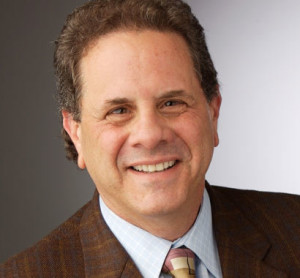Contributor: Daniel Angres, M.D., serves as the Medical Director of the Positive Sobriety Institute as well as Chief Medical Officer of RiverMend Health Addiction Services.
 We all want to see those we love and care about get the help they need if they are suffering from addiction. But what happens when our loved one isn’t ready? What happens when they’re not fully committed to receiving the treatment they need?
We all want to see those we love and care about get the help they need if they are suffering from addiction. But what happens when our loved one isn’t ready? What happens when they’re not fully committed to receiving the treatment they need?
The Stages of Change
It should come as no surprise that not everyone who suffers from addiction is ready and willing to make the necessary changes to move away from addiction and step onto the path of a healthy lifestyle.
People often go through a series of stages as they begin to recognize the impact of addiction and the need to change. This recognition doesn’t happen all at once. Instead, it typically begins with full denial and gradually moves toward lasting change with a number of emotions and hurdles in between.
The stages of change include:
- Pre-contemplation – People at this stage are in complete denial. They do not believe that they have a substance abuse problem and easily dismiss any viewpoint to the contrary.
- Contemplation – In this stage they are thinking about making changes but are not committed. They are still dealing with a fair amount of denial.
- Preparation – People at this stage are deciding how to make the necessary changes and want to make them.
- Action – In this stage they have started the process of taking action and need help with avoiding high-risk situations, developing new strategies for success, and taking the necessary and realistic steps required to achieve and maintain sobriety.
- Maintenance – Once the action stage has been maintained for a period of time, the goal is to sustain the new behavior for a lifetime. This is when an addiction-free life is firmly established and the threat of relapse, while always present, begins to be less intense.
What is Motivational Interviewing?
 Motivational interviewing is the process of helping people move through these stages of change. It begins with meeting the individual where they are.
Motivational interviewing is the process of helping people move through these stages of change. It begins with meeting the individual where they are.
This client-centered, empathetic method of counseling is designed to help individuals address their resistance to change. While some people are extremely motivated to transform their lives, many are not as inspired.
The desire to move in the direction of a sober life is developed by establishing a working, trusting relationship with a counselor who provides a safe environment; an environment where the consequences of addictive behavior can be thoughtfully examined and considered.
Creating the Space for Reflection
In order to create the safe environment necessary to facilitate change, motivational interviewing utilizes a method called OARS to build rapport and manage resistance to change.
OARS stands for:
- Open-ended questions – This step involves asking questions designed to get the conversation started. The questions asked are intended to encourage the client to have control of the conversation in order to create a sense of safety.
- Affirmations – Affirmations are statements of support during the counseling sessions that demonstrate understanding and compassion for what the client is experiencing.
- Reflective listening – Empathy can be demonstrated through active listening with meaningful responses, when appropriate, that reflect a true understanding of what the client is expressing.
- Summaries – This is where the client receives validation that what they have communicated has been heard and understood.
A commitment to change is critical to the addiction rehabilitation process. Understanding how one moves from full denial to taking action allows counselors to meet each person exactly where they are so that they may help them navigate the path back to a healthy life.
Community Discussion – Share your thoughts here!
What has been your experience with motivational interviewing? Have you benefitted from the use of motivational interviewing as part of the addiction treatment process?
About the Author:
 Dr. Daniel Angres is an addiction psychiatrist and specializes in working with health care and other professionals. Currently, he serves as the Medical Director of the Positive Sobriety Institute as well as Chief Medical Officer of RiverMend Health
Dr. Daniel Angres is an addiction psychiatrist and specializes in working with health care and other professionals. Currently, he serves as the Medical Director of the Positive Sobriety Institute as well as Chief Medical Officer of RiverMend Health
Last Updated & Reviewed By: Jacquelyn Ekern, MS, LPC on August 8th, 2015
Published on AddictionHope.com
